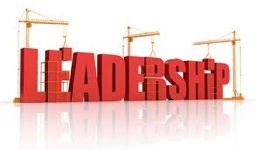Need Assistance? - Click Here To Email or Call 1.800.526.6038
Need Assistance? - Click Here To Email or Call 1.800.526.6038

This episode of the Coaching Crucible training is about employing a powerful "Product Pyramid" to help you grow your business. This information is critical, no matter what market you might be in. This hour long training is bursting with helpful information which can help you build a solid foundation for your business. I hope it serves you well!
Warmly,
Drayton
You can find out more about me here.
Here's the link to the complimentary video training on our special YouTube Channel: 
*Due to the amazing demand for the complimentary public service training we do each month, we have created a YouTube Channel where you can access all of the previous training webinars dating back to 2012. These are all complimentary. Please subscribe to our channel so that you will be notified automatically when we post new videos. Enjoy!
You can register for future Coaching Crucible webinars here.
*************************************************************************
Please join Gary Henson and me as we take on the biggest issues in the coaching industry. This is a free public service program we offer each month. It is lively, provocative, and packed with helpful information!

I am often confronted with the question “Why are you sending these blogs to me? I’m not an executive!” from those non-business executives to whom I forward ECU blogs. After all, we are the “Executive Coaching University”, so all our material is targeted only to those seen as business executives, right? Wrong!
In my mind the term “executive” is more adjective than noun – it describes how someone approaches her life rather than who she is and is synonymous with “peak performer”…someone who desires to live life at the highest level possible.
An executive/peak performer:
An executive/peak performer:
An executive/peak performer:
An executive/peak performer:
An executive/peak performer:
An executive/peak performer:
High level performers wear many different hats and hold many different roles within our society. Yet, they share the characteristics outlined above.
If you are reading this you are an executive regardless your official “title”!
Welcome executive – now pass it on to your brother and sister high performers!
Find out more about Greg here.




When asked at a corporate retreat to detail his biggest challenge as a senior level executive, an esteemed colleague recently shared with me that he was literally brought to tears of frustration as he described his efforts to connect and inspire his younger workforce.
Turnover from this segment was at an all-time high and it was severely affecting morale, production and leadership.
This scenario is happening all over the world. Millennials currently represent 30% of our workforce and will grow to over 40% by 2020. This issue will only exapand in importance. The press has written about this generation as the “Me Generation.” There are more similarities in values than one may think between generations; it is the order and priorities using these values in their lives that are different.
Here are three suggestions to engage differently with your Millennial workforce. If you want to gain a competitive edge, reduce turnover costs (and your frustration level), keep reading!
Transform your culture to create buzz with Millennials as an organization that “gets it.”
This requires a different mindset in how we lead. Having a coaching professional to help you see things differently...asking provocative questions of the entire organization, stimulates new thinking. This shift leads to quicker solutions.
Remember, all business problems are people problems!
It is a new world. It is changing rapidly. It will not be “the way it was” ever again. By acknowledging these things and creating a plan to engage Millennials differently, you will be out in front as the trend setter with this vital segment of the workforce. Your turnover costs will drop and company morale will rise…not to mention your life will get a whole lot better when you are not frustrated to tears.
Are your Millennials bringing YOU to tears? Please leave your comments below. 
This program will help you become an even better leader!
Coaching In The Workplace
© 2014 and beyond Executive Coaching University. All rights reserved.


Do you feel like this guy? Rest assured, you are not alone!
Please listen to this podcast. It was originally provided to people who purchased my book, Coming UnScrooged. I feel so passionate about the content that I wanted to make it available to everyone.
It's a wakeup call for all business people!
Warmly,
DraytonBoylston
CEO - Executive Coaching University
Click on the link below to access the recording.
Executive_911
Please know that we are here to help!. You can find out how we can assist here.
© 2014 and beyond Executive Coaching University. All rights reserved.
We just received word that our flagship Executive Coaching Training Program (CMEC) was approved by the International Coach Federation! We can now award 15 CCEUs (credit hours) toward coaching certifications with the ICF. This is a wonderful compliment to our SHRM certifications.
This is such a beautiful reflection on our entire team. Congratulations to all of you!
Many thanks to all of you for your support over the years. We are so blessed…
You can find details here:
http://www.executivecoachinguniversity.com/
Warmly,
Drayton
Founder and CEO
According to Gallop (and other leading survey firms) here is the reality:
What do you think of these smelling salts?!
Coaching can address all of these issues…in fact; it may well be the ONLY thing that can cure these workplace “ills.”
If you don’t have a coaching strategy in your organization, I can guarantee you one thing—these statistics will not go down…
Coaching is the “cure.” Isn’t it time you used coaching to focus on your most important asset…your people?
A. Drayton Boylston
Founder and CEO
Executive Coaching University
© 2013 and beyond Executive Coaching University. All rights reserved.

Are Leading or just Managing?
Pretty sad facts.
Guess what? They more than likely apply to your organization too.
And...
If you manage people, you own this!
What’s happening within our workforce to make these statistics a reality?
In the United States employee engagement only averages 30%. That's it.
Why?
It comes down to poor leadership.
We have spent so much energy creating “good managers” that we have become disengaged with what it means to be a good leader.
Managing comes from a need to produce an outcome, which of course, is important. However, when we can move to a place of leading those around us the organizational momentum transforms. More than anything employees want to make a contribution. Once they feel that they are, they stay...and they stay engaged. Which boosts your bottom line.
If you have the management skills without the leadership skills your career will plateau at some point. That is a fact.
The soft skills that good leaders possess are going to be in high demand as the battle for top talent continues to increase. Are you ready?
Click here to find out more about Jenna.

Want to learn how to become a better leader? Click here for details.
Coaching In The Workplace - Training for Executives, Managers, and HR Professionals
© 2014 and beyond Executive Coaching University. All rights reserved.
While our time together progressed, my client must have glanced towards, or checked in some way, her “smart phone” three or four times over the course of our first fifteen minutes.
I commented on her split attention and asked her to turn off the phone and just be focused on our time together for the next forty five minutes – fully focused upon our work. The look on her face would have lead someone not knowing my request, to think I had asked her to do something exceptionally distasteful…maybe even illegal!
Through our discussion around my request it became quite clear that she had NEVER turned off her phone – it was always on. This meant she was always connected, always available, always “on.”
She explained that this level of being available and connected was the status quo at her corporation and essentially had been the status quo since she was at University. “What if I miss something really important?” she asked. “I’m not productive if I’m not juggling a number of issues, projects, or conversations at once!” she stated.
This multitasking misconception arises quite often, especially with high performers who see their success as driven by the ability to do many tasks at the same time.
Yet, there is a downside to always being “on.” Consider:
Is it possible that any of the above might contribute to the 33% worker productivity rate in the U.S? 33%!!!
There are also other, more personal costs. This particular client was referred to me due to increasing conflicts between her staff and those in her chain of command – she had become “hard to work with” and was close to losing the job she so valued.
Additionally, her marriage was on the verge of divorce and she had been diagnosed with digestive/intestinal issues primarily caused by stress.
Coincidence? Not likely!
Sound familiar? Chances are if you are reading this then you have experienced, or know someone close to you who has experienced, a very similar chain of events.
Take time to focus within the moment, express gratitude, and disconnect at least once daily. You will find you are actually more productive, healthier, and happier. Then lead all those around you to do the same!
Greg Styles
Director of Special Projects

© 2013 and beyond Executive Coaching University. All rights reserved.
